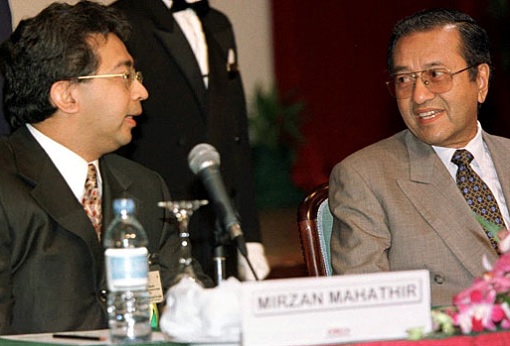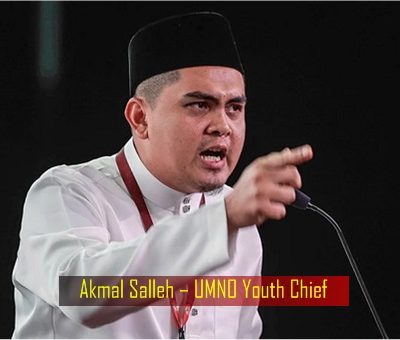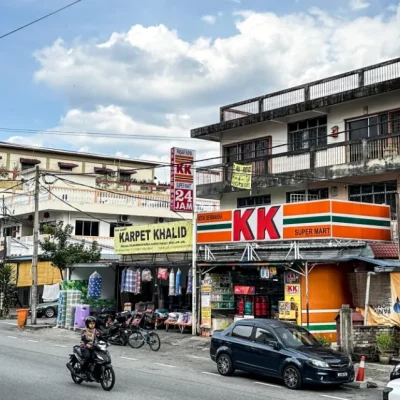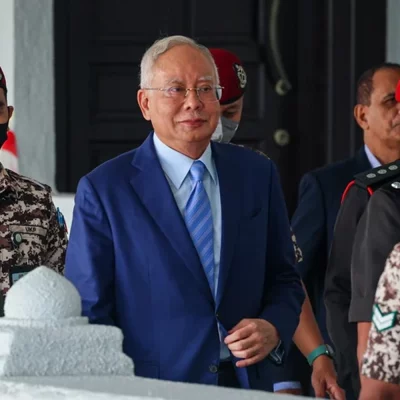Finally, PM Anwar Ibrahim has agreed to settle the 25-year feud with Mahathir – in court. His former boss, Mahathir, was the longest serving prime minister of Malaysia – ruling with iron-fist for 22 years (1981-2003) during which his deputy Anwar was sacked in 1998 over corruption and sodomy charges, accusations condemned internationally as politically motivated.
Astonishingly, after 25 years of fighting the Barisan Nasional, the same corrupt regime that had imprisoned him “twice” for the same sodomy charges – first under Mahathir Mohamad and later Najib Razak administration – Mr Anwar got his wish granted when he was sworn in as the 10th Prime Minister on Nov 24, 2022, forming the Unity Government with the same coalition.
Mr Mahathir, who was already 92 years old in 2016 when he announced his stunning political comeback from retirement to unseat yet another protégé-turned-nemesis Mr Najib, struck an unlikely deal with the still imprisoned Mr Anwar. Mahathir became prime minister again when he led the Opposition Pakatan Harapan alliance to victory in 2018’s landmark elections.
While he fulfilled his promise to free Anwar from prison through a full royal pardon, the ex-premier broke his promise to hand power to his former protégé within 2 years. He would rather let his lieutenant Muhyiddin Yassin, president of Bersatu, snatched power than to see Anwar take over. On Feb 2020, the old man unexpectedly resigned without consulting allies in Pakatan Harapan.
Anwar, president of PKR (People’s Justice Party), was left empty-handed once again. But the backdoor Perikatan Nasional government hastily glued by Muhyiddin with defeated Barisan Nasional and extremist PAS Islamist party was soon plagued with political turmoil. Muhyiddin eventually tasted his own medicine when UMNO-led Barisan withdrew support, forcing him to resign.
Muhyiddin proved to be nothing but an empty vessel, having mismanaged the economy and mishandled the Covid-19 pandemic. His successor, “turtle-egg” Ismail Sabri was equally clueless and incompetent. Malaysia wasted 33 months under both prime ministers that saw sagging economy, bearish stock market, rising costs of living, un-affordable housing and depreciating local currency.
It’s hard to blame Anwar for wanting to take revenge after what Mahathir had done to him, from throwing him into jail over fabricated charges to breaking a promise to hand power after defeating Najib. His youngest daughter, Nurul Hana, was only 6 years old when Mahathir, whom she described as the “wicked man” who had taken her “papa” to prison on the night of Sept 20, 1998.
Even if Anwar can forget and forgive Mahathir for wrongly imprisoned him, and given the infamous “black eye” after assaulted by none other than former police chief Abdul Rahim Noor, the new PM finds it hard to ignore the damages done to the country as a result – either directly or indirectly – of Mahathir. When he took over 5 months ago, he was shocked to discover RM1.5 trillion debt.
Last month, PM Anwar said Mahathir, without specifically mentioning his name, had enriched his family during his administration. The old man went ballistic, demanding a public apology as well as a withdrawal of the remarks or be sued for defamation. It could be a deliberate provocation to lure Mahathir into a long court battle that would reveal all his skeleton in the closet.
Mahathir might think he was still the same strategist grandmaster in his latest brinkmanship game with Anwar. He probably had forgotten the dozens of scandals during his 22 years in power, not to mention he no longer controls the judiciary and anti-corruption agency. Anwar is calling Mahathir’s bluff as going to court will open the Pandora box which the ex-premier tries to protect all his life.
It’s not hard to prove how the ex-premier had enriched his family. Of all the financial scandals, the most personal was the bailout of his son’s Konsortium Perkapalan Berhad in 1998. In fact, the primary reason Mahathir had sacked Anwar was not merely because both men disagreed on the method to tackle the 1997-1998 Asia Financial Crisis plaguing the country.
Then-Deputy Prime Minister Anwar (1993-1998) was seen as Mahathir’s successor – till the Asian crisis exploded, triggered by the collapse of the Thai baht in July 1997, leading to a currency crisis followed by a financial crisis and ultimately economic recession in most countries of the region. Panicked, Mahathir blamed currency speculators, especially George Soros and even the Jews.
On September 1997, Mahathir declared that “currency trading is unnecessary, unproductive and immoral”. More damagingly, the prime minister threatened a unilateral ban on foreign exchange purchases unrelated to imports. It only upsets the markets further. Heck, he had even threatened to use repressive measures against anyone who published unfavourable reports about the Malaysian economy.
Investors saw Mahathir’s denial as proof that he had a lot to hide from public scrutiny. The Malaysian Ringgit plunged from RM2.50 to a record RM4.885 per dollar in 1998, before it was pegged at 3.80 per dollar. The Kuala Lumpur Stock Exchange (KLSE) Composite Index (KLCI) dropped from over 1,300 in the first quarter of 1997 to less than 500 in January 1998, to around 300 in August 1998, and to 262 on September 2, 1998.
Anwar, who was also the Finance Minister at that time, was considering a modified IMF-type measures. As the economic situation deteriorated in the second half of 1997, Anwar became more receptive to IMF policy advice. After securing the full cabinet support (in Mahathir’s absence in early December 1997), Anwar implemented a series of tight-money prescription – without taking IMF money.
There was one huge problem – Mahathir rejected Anwar’s approach, whose free-market-oriented corrective measures would mean Mahathir and his sidekick Daim Zainuddin’s cronies would go bankrupt for over borrowing. More importantly, Mahathir’s eldest son, Mirzan Mahathir’s company – Konsortium Perkapalan Bhd (KPB) – would go bust without a bailout.
Mahathir was also shocked by the surprise resignation of Indonesia’s President Suharto in May 1998. The Malaysian dictator began to worry about the foreign media’s calls for Anwar to replace him as well as the increasingly independent and critical stance of Anwar supporters in the government. He began to criticize Anwar as a “stooge” of the IMF, before finally sacked him on Sept 2, 1998.
In March 1998, Malaysia International Shipping Corp. (MISC) announced that it would acquire Mirzan company. The news triggered accusations of a bailout at a time when the country was facing its economic troubles. The sale included US$55 million for Hong Kong-based Pacific Basin Bulk Shipping, which Mirzan’s Konsortium bought for US$230 million in 1996 as part of an aggressive regional expansion campaign.
In addition, MISC will buy the assets of KPB’s Malaysia-based PNSL Bhd for US$165 million, which Mr Mirzan purchased for RM247.4 million from a state agency in 1992. Not only MISC handed over a total US$220 million to Mirzan, who owned 51% of Konsortium, but would also take over a net debt of US$311 million from the acquired companies.
Interestingly, even before the 1997 Asia Financial Crisis, Konsortium Perkapalan Bhd had already accumulated RM1.7 billion debt (end of 1996) under Mirzan leadership. It was so bad that there were naughty rumours the Mahathir’s son was considering “suicide” over the massive debts. Without the bailout, Mirzan would go bankrupt as KPB’s market value was almost wiped out during the financial crisis.
The best part was the main shareholder of MISC was Petronas, the national oil company which comes directly under the Prime Minister Office. Yes, while 6-year-old Nurul Hana cried after her “papa” was taken away to prison, 37-year-old Mirzan Mahathir cried to his “papa” to rescue his company. Thanks to his father, Mirzan’s debt in KPB was settled.
The rescue of his son’s company came just six months after Mahathir Cabinet announced on September 3, 1997 of the creation of a special RM60 billion fund for “selected Malaysians” – understood as a bail-out facility designed to save “cronies”. Besides Petronas, Employees Provident Fund (EPF) money had been deployed to bail out some of the most politically well-connected and influential.
Other companies that enjoyed mega bailouts, just to name a few, included UEM-Renong, Malayan Banking, Bank Bumiputra, Sime Bank, KUB, Bank of Commerce, RHB Bank, Ekran’s Bakun Dam Project, Park May-Intrakota bus and Monorail. A whopping RM2.34 billion of taxpayers’ money was used – quietly – to bail out UEM-Renong alone, which was linked to Mahathir’s political party UMNO.
Under Mahathir’s instruction, the EPF and other Malaysian government controlled institutions were believed to have bought about RM2 billion of Malaysian stock through Singapore and Hong Kong based brokers to give the impression of renewed foreign investor interest in the Malaysian market. In the end, EPF lost over RM10 billion in 1998 thanks to Mahathir and Finance Minister Daim.
Clearly, not only Mahathir had abused his power to rescue Mirzan, but had enriched his son by bailing out Konsortium Perkapalan Bhd. The burning question is from where did his son get all the money to fund his purchase in KPB, not to mention other companies like Petron, Malaysian Helicopter Services, Lion Corp, Artwright Holdings, Dataprep Holdings, Leader Universal, Diperdana Corp and whatnot?
As early as 1994, Mirzan bought at a 24% discount to the market price 1.5 million shares in steel cable firm Leader Universal, under a preferential state allocation scheme to transfer corporate ownership to bumiputras or indigenous people. At the age of 37 in 1998, analysts valued Mirzan Mahathir’s holdings in public companies alone to be in excess of US$880 million. He was said to sit on the board of 95 companies in 1999.
But Mirzan was not the only lucky son having strong cable to enrich him. Mokhzani Mahathir, the second eldest son of the former prime minister, joined the ranks of the country’s top 10 richest people in 2014 on the 9th spot – worth an estimated RM4.22 billion. In early November 2012, Petronas awarded a RM700 million contract to the SapuraKencana Petroleum mogul.
Billionaire Mokhzani also became the largest shareholder of Pantai Group of hospital after acquired it from Berjaya Group founder Vincent Tan, who happens to be one of Mahathir’s cronies. Pantai hospital was part of Parkway Holdings Ltd, which in turn was started by Malaysians (Tan family of IGB Corp and the Ang family of Petaling Garden) in the 1970s.
Together with another brother, Mukhriz and Mokhzani were awarded contracts in optical fibre manufacturer Opcom Holdings Berhad, which has profited from the RM21.6 billion project of the National Fiberisation and Connectivity Plan (NFCP). According to the opposition, close to 500 companies were registered under the names of Mahathir and four of his children.
While 16 companies were under Mahathir Mohamad’s name and 29 were under his daughter Marina’s name, a jaw-dropping 156 were under Mirzan’s name and 158 were under Mokhzani’s whereas 126 were under Mukhriz’s name. When the trial starts, Anwar’s attorney will be having fun grilling every single offspring of Mahathir, exposing how they get mega rich so young and so easily.
Source : Finance Twitter
The Coverage Malaysia






